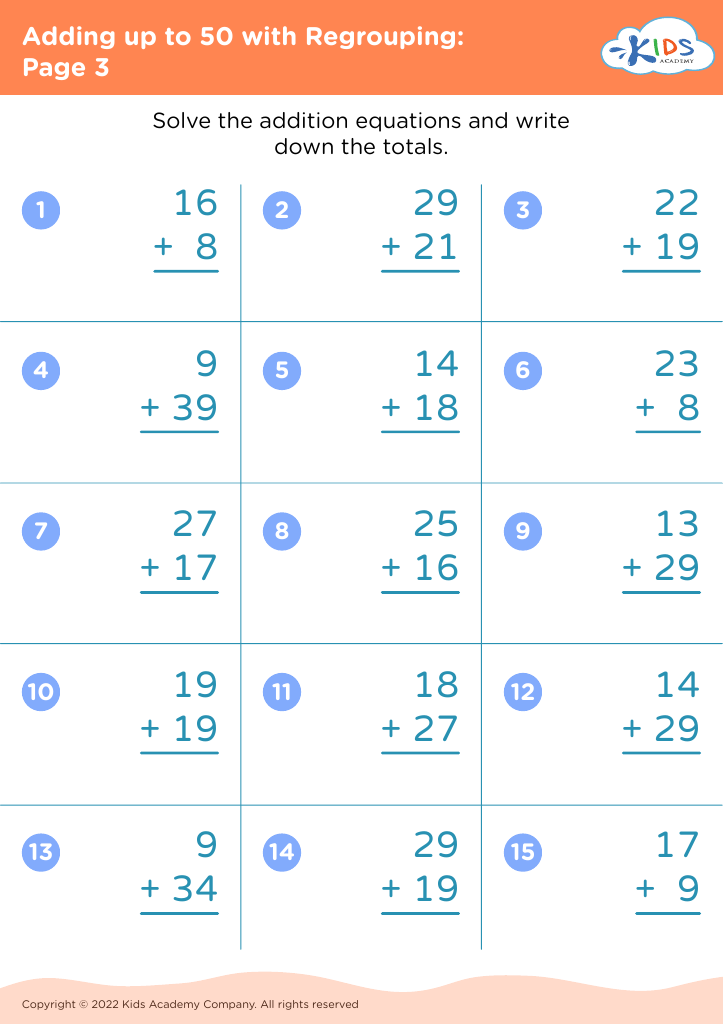Understand comparisons Worksheets for Kids
1 filtered results
-
From - To
Question/Answer
How does the mastery of the Understand comparisons skill affect a student's performance at an early age?
The mastery of the Understand comparisons skill at an early age significantly enhances a student's cognitive abilities, including critical thinking, problem-solving, and analytical skills. It aids in their academic performance across subjects by enabling them to grasp complex concepts more easily, compare and contrast information effectively, and make informed decisions.
What are some effective activities to train students’ Understand comparisons skill when teaching them about Adding up to 50 with Regrouping?
To train students' understanding of comparisons while teaching Adding up to 50 with Regrouping, engage them in activities like: 1. Pair Comparisons: Students pair up, solve different addition problems, then compare answers to understand regrouping's impact on sums. 2. Sorting Sums: Give cards with sums (regrouped/not regrouped) to sort into two piles, reinforcing comparison skills. 3.
What does the Understand comparisons skill mean when it comes to Grade 2 Adding up to 50 with Regrouping learning?
The "Understand comparisons" skill in the context of Grade 2 Adding up to 50 with Regrouping involves recognizing and explaining how different sums compare to each other. For example, students learn to determine if one sum is larger, smaller, or equal to another and use terms like "greater than," "less than," or "equal to" to describe these relationships.












